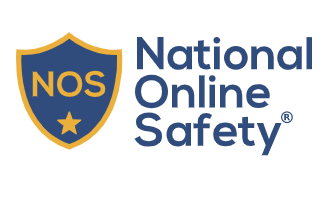E-safety
Online Safety is an important part of keeping children safe. It is part of our PSHE curriculum, Computing curriculum and a focus for assemblies.
We can only be successful in keeping children safe online if we work with parents to ensure the e-Safety message is consistent. Your help is needed to talk to your children about how they can keep safe and behave appropriately online.
What can you do to help?
Ground Rules
How is the Internet used in your house?
Discuss as a family how the internet will be used in your house. Consider what should be kept private online (personal information, photos etc) and decide rules for making and meeting online friends. Make sure you know what your child is doing online much like you would offline.
Online Safety
Does your child have the same access as you?
Install antivirus software, secure your internet connection and use Parental Control functions for computers, mobile phones and games consoles to block unsuitable content or contact
Remember that parental control tools are not always 100% effective and sometimes unsuitable content can get past them, so don’t rely on them alone to protect your child.
Location
Does your child go online in their bedroom? Are you happy with that?
Locate your computer in a supervised family area. Always supervise the use of webcams in and applications which allow voice or video chat. Consider your child’s use of other devices that allow internet access such as Mobile Phones and Games Consoles.
Dialogue·
Do you talk about what is happening on-line?
Talk to your child and ask them to show or even teach you how they use the internet, learn which websites or tools they like to use and why. Learning together can often open opportunities to discuss safe behaviour with your child.
Always ensure your child knows how to block or report people online who send nasty or inappropriate messages or content. Encourage your child not to retaliate or reply.
Make sure your child knows to tell an adult they trust if they see something online that makes them feel scared, worried or uncomfortable.
It’s essential to be realistic - banning the internet or technology will not work and it often makes a child less likely to report a problem. Education around safe use is essential.
Websites for more information
www.bbc.com/ownit/curations/staying-safe - Sound advice for keeping your time online safe, secure and happy.
https://www.virginmedia.com/blog/online-safety/childrens-internet-safety-test/ - useful information about Internet safety and an online children's Internet safety test.
https://www.commonsensemedia.org/articles/parents-ultimate-guide-to-fortnite - a parents' guide to what you need to know about Fortnite.
https://nationalonlinesafety.com/guides/instagram-2022 - a parents guide to Instagram
https://nationalonlinesafety.com/guides/roblox-2022 - a parents guide to Roblox

https://www.internetmatters.org/issues/cyberbullying/ - information about cyberbullying






